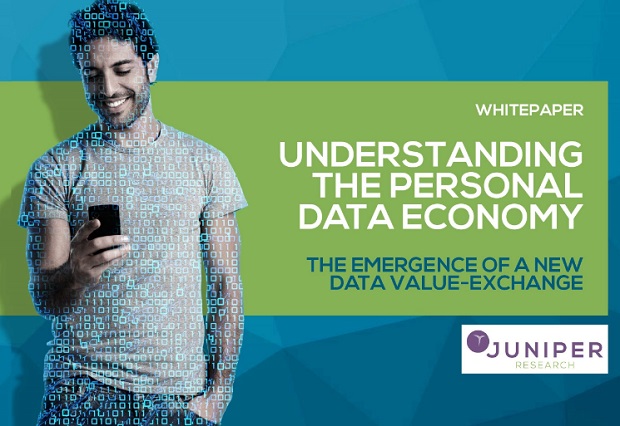There is growing evidence of a personal data economy; a concept that puts individuals in control of their personal information and allows them to share it with businesses, brands and other trusted third parties on their own terms, according to a new free whitepaper report.
The report, from global mobile trade body MEF and Juniper Research, found that the key data fields for a personal data economy would include basic ID, health information, financial records, buying history, social media activity and biometrics.
At the moment a handful of startups are leading the charge including Digi.Me, Meeco and Cozy Cloud as well as government agencies and brands that are trialing or actively re-thinking how they manage and use personal data.
The study outlines the Personal Data Economy: an idea that puts individuals in control of their personal information and allows them to share it with businesses, brands and other trusted third parties on their own terms. This includes basic ID, health information, financial records, buying history, social media activity, biometrics and more.
At present, most of this, often sensitive, data is held in silos by third parties. This can lead to concerns over privacy or security scares. It is also inefficient. If a person wants to retrieve their health records, for example, it is typically a painful process involving multiple layers of permission, passwords and verification.
A user-centric personal data economy, says the whitepaper, aims to address these challenges. Data is under the control of the individual and is stored locally or on a cloud of choice. And since the information is aggregated by the user it will always be accurate and up to date, helping individuals take control of their digital lives, empowering better decisions and even selling their own data where there is a fair and trusted value-exchange.
The report argues that upending the status quo can benefit companies too. It identifies four key business benefits:
• It enables deeper more trusted relationships with brands and enterprises
• Companies can offer new, more personalised products and services
• It gives any trusted third party access to rich data with full permission
• It can make businesses more efficient when it comes to data management
The concept is not new but is rapidly gaining momentum and the study highlights how enterprises are re-thinking their approaches to data gathering and monetisation. It cites the forthcoming European General Data Protection Regulation which comes into effect in 2018 as a key driver for the personal data economy with the emphasis on consent, transparency and giving individuals more control.
The study shares some of the live trials that are helping brands, telcos, enterprises and governments understand the opportunities and complexities of new business models based on data. It also looks at the start-ups offering personal information management services (PIMS) and innovative ways of identification, and profiles some of participants in the sector.
MEF’s CEO Rimma Perelmuter said: ‘New data protection regulation such as GDPR enables new revenue opportunities and is driving innovation that empowers consumers. The Personal Data Economy which puts the individual in control is an incredibly exciting arena and set to be a game-changer. We’re delighted to have partnered with Juniper Research to deliver a comprehensive guide which illuminates this burgeoning market.”
The free whitepaper, ‘Understanding The Personal Data Economy’, is available to download from the Mobile Ecosystem Forum website.

